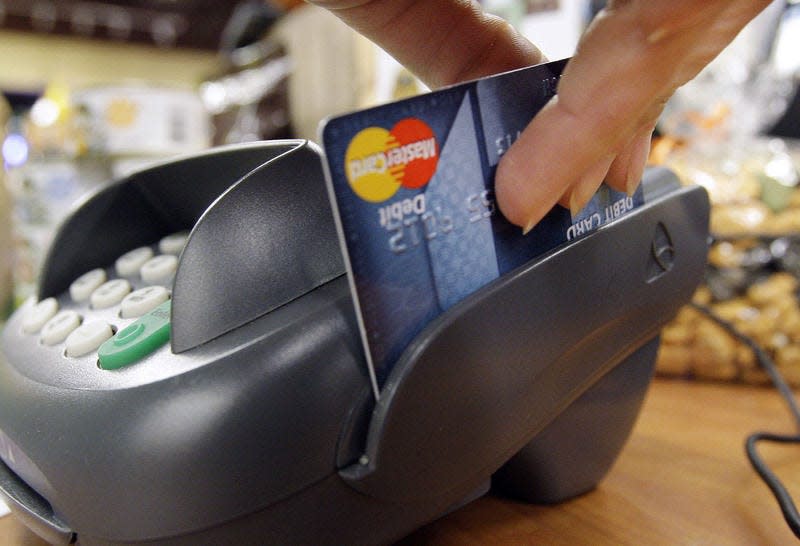Viewpoint: These credit card fees take a 'swipe' at small business
Over the past decade, the “swipe” fees big banks and card networks charge merchants to process credit and debit card transactions have more than doubled. Last year alone, they skyrocketed 25% to a record $138 billion. These fees are most merchants’ highest operating cost after labor – far too much to absorb – and drive up consumer prices by $900 a year for the average family, according to the National Retail Federation.Swipe fees affect all merchants and their customers but have the greatest impact on small businesses. Rates are higher for those of us with only a few dozen transactions a day than for national chains with millions of transactions. And while large merchants might have an entire payments department dedicated to navigating the complexities of credit card rules, fees and contracts as thick as a phone book, that’s not the case for Main Street retailers. We are offered credit card services on a take-it-or-leave-it basis with no power to negotiate and no choice but to pay.
In my 28 years in the retail business, I’ve seen swipe fees go nowhere but up. For my 91-year-old fashion and special occasion apparel store, the amount we pay in swipe fees each year has grown to the equivalent of a starting employee’s salary. A grocery store friend says his swipe fees actually exceed his utility bills – amazing considering the cost to refrigerate perishable and frozen items!The reason swipe fees are out of control is that Visa and Mastercard – which hold 80% of the market – have shut out competition. They centrally set the fees charged by banks that issue their cards rather than banks competing to offer merchants the best deal. They further restrict competition by blocking transactions from being routed over other networks that offer lower fees and better security.The current anticompetitive market also removes any incentive for innovation in security. The Federal Reserve says Visa and Mastercard’s networks have five times the fraud of independent networks. In fact, the United States has the most credit card fraud in the world – 34% of fraud but only 22% of card volume. And the Fed says most fraud costs are paid by merchants, not banks or card networks.This broken market is why the bipartisan Credit Card Competition Act has been introduced in Congress by Sens. Dick Durbin, D-Ill., and Roger Marshall, R-Kan.
This landmark pro-consumer legislation would require that the nation’s largest banks enable credit cards they issue to be routed over at least two unaffiliated networks – Visa or Mastercard plus an independent network like NYCE, Star or Shazam, or even American Express or Discover. Banks would decide which two networks to enable on each card, but merchants would decide which to use, forcing Visa and Mastercard to finally compete with other networks over fees, service and security.
Payments consulting firm CMSPI says merchants would save at least $11 billion a year, helping them hold down prices for customers.
Since independent networks have less fraud, consumers’ sensitive financial data would be better protected. The bill would also bar networks controlled by foreign governments like China’s UnionPay from the market, closing a glaring security gap that currently gives banks the option to outsource transactions.It’s time to open the credit card playing field to fair and competitive market practices. Small businesses here in the middle of America compete every day. Isn’t it time that Wall Street banks and global card networks headquartered in New York and California do the same? I encourage Indiana Sens. Mike Braun and Todd Young – a member of the Senate Small Business Committee – to make that happen by cosponsoring the Credit Card Competition Act.
Danny Reynolds is the owner of Stephenson’s of Elkhart, a clothing store in downtown Elkhart.

This article originally appeared on South Bend Tribune: Credit card 'swipe' fees have doubled, hurting small businesses.

